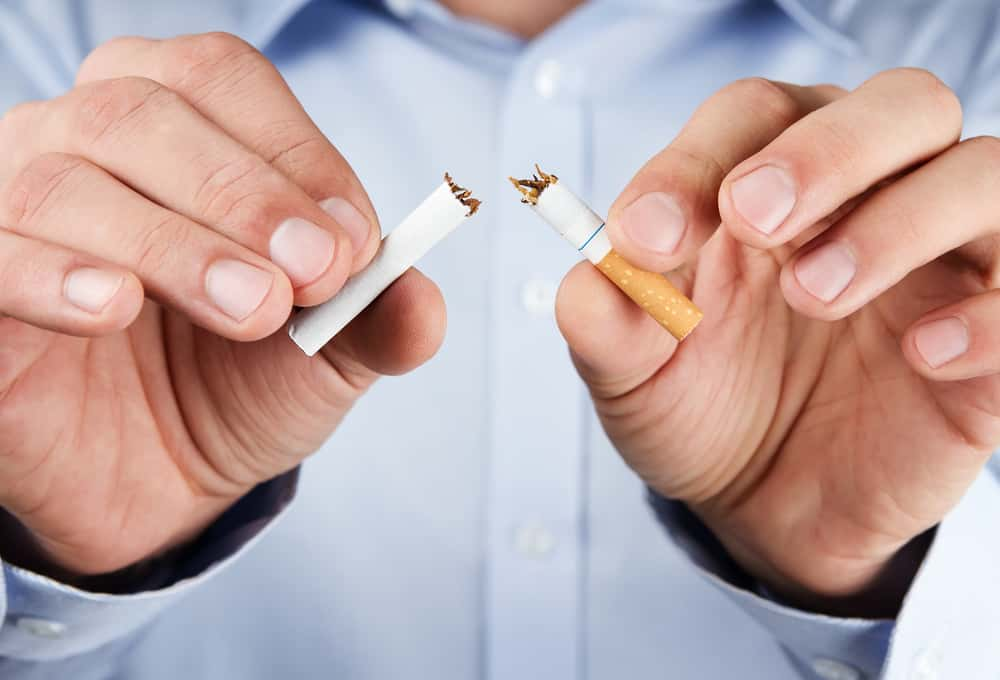12 Bad Habits to Kick to the Curb Today

So, we all have our little routines, right? Some keep us going strong, and others... well, not so much. Some sneaky habits might be doing more harm than we realize. But hey, no stress! The first step to leveling up our health game is spotting these culprits.
Whether these habits are borne from modern lifestyles, societal pressures, or mere oversight, it's important to pause, reflect, and course-correct.
Easier said than done though, right?
Why is it So Hard to Break Bad Habits?
Breaking bad habits can be tough, and there are several reasons why.
First off, we humans love our routines; they're comfy and familiar. Plus, bad habits often give us a quick feel-good boost, even if they're not great in the long run.
On a brain level, the more we repeat a habit, the more "set" it becomes in our neural pathways, making it tricky to shake off. Sometimes, we might not even realize a habit is problematic, or we're just too overwhelmed by the idea of changing.
Our surroundings, like our friends or favorite hangouts, can also keep nudging us back into old patterns. And, let's face it, sometimes we're just afraid to try and not succeed, or we think, "This is just how I am."
Change is challenging, but with the right mindset and support, it's totally doable—but you have to have a little patience. Correcting bad habits doesn’t happen overnight. How long does it really take to effectively change your ways?
How Long Does it Take to Kick a Bad Habit?
Changing a bad habit is a complex process and the time it takes can vary widely depending on the individual, the nature of the habit, the environment, and other factors.
However, a popular notion stemming from Dr. Maxwell Maltz's observations in the 1960s suggests it takes about 21 days to form a new habit.
More recent research, like a study from the University College London, indicates that on average, it takes more than 2 months — specifically 66 days — for a new behavior to become automatic. But this can range anywhere from 18 to 254 days.
It's crucial to remember that individual experiences will differ, and consistency, motivation, and personal circumstances play a significant role in the habit-changing journey.
Ready to find out which habits might be playing tricks on your health? Let's dive in!
Smoking
Smoking damages nearly every organ in the body, increases the risk of numerous diseases, and reduces one's overall health.
According to the CDC, smoking is the leading cause of preventable death, accounting for more than 480,000 deaths every year in the U.S.
Alternative: Use nicotine replacements or consult a healthcare professional to explore smoking cessation programs. Engaging in regular physical activity can also curb cravings.
Sign Up For Our Newsletter
Stories that matter — delivered straight to your inbox.
Excessive Alcohol Consumption
It can lead to chronic diseases, mental health disorders, and social issues.
The World Health Organization (WHO) reports that alcohol contributes to over 3 million deaths globally each year.
Alternative: Limit intake to moderate levels or consider social activities that don't revolve around alcohol.
Skipping Breakfast
Breakfast jumpstarts metabolism and provides energy for the day.
A study published in the Journal of the American College of Cardiology found skipping breakfast was significantly associated with an increased risk of cardiovascular-related death.
Alternative: Opt for a nutritious breakfast like whole grain cereal, fruit, and yogurt.
Overusing Digital Devices
Excessive screen time can strain eyes, disrupt sleep, and reduce physical activity.
A report from Nielsen found the average American spends over 11 hours a day interacting with media.
Alternative: Schedule tech-free breaks, invest in blue-light blocking glasses, or try apps that reduce screen time.
Eating Processed Foods
Processed foods often contain unhealthy fats, sugars, and sodium which can lead to various health issues.
A study in JAMA Internal Medicine linked ultra-processed foods to a 14% higher risk of early death.
Alternative: Focus on whole foods and cook meals at home using fresh ingredients.
Not Getting Enough Sleep
Lack of sleep affects mood, cognitive function, and overall health.
The CDC states that 1 in 3 adults doesn't get enough sleep.
Alternative: Establish a regular sleep schedule and create a bedtime routine to relax.
Sedentary Lifestyle
A lack of physical activity increases the risk of numerous diseases and conditions.
The World Health Organization lists physical inactivity as the fourth leading risk factor for global mortality.
Alternative: Incorporate movement into your day, like walking, stretching, or short workouts.
Sign Up For Our Newsletter
Stories that matter — delivered straight to your inbox.
Excessive Caffeine Intake
Too much caffeine can lead to restlessness, insomnia, headaches, and increased heart rate.
A study from the Mayo Clinic suggests that consuming more than 400 mg of caffeine daily can lead to negative side effects.
Alternative: Limit coffee intake and consider switching to decaf or herbal teas.
Negative Self-talk
It diminishes self-worth, affects mental well-being, and influences behavior.
The National Science Foundation estimates that of the 60,000-80,000 thoughts we have in a day, 80% are negative.
Alternative: Practice mindfulness, positive affirmations, and surround yourself with positive influences.
Multitasking
Multitasking can reduce efficiency and the quality of work.
Research from Stanford University reveals that multitaskers are less productive than those who focus on a single task.
Alternative: Prioritize tasks and tackle them individually. Use tools like the Pomodoro Technique to enhance focus.
Not Drinking Enough Water
Dehydration can lead to fatigue, dizziness, and reduced cognitive abilities.
According to a CDC study, 43% of adults drink less than four cups of water a day.
Alternative: Carry a reusable water bottle and set reminders to stay hydrated.
Avoiding Routine Check-ups
Regular check-ups can detect potential health issues before they become severe.
The CDC states that chronic diseases, many of which are preventable, account for 7 out of 10 deaths.
Alternative: Schedule regular appointments with your primary care doctor and other specialists as needed.
Final Thoughts

Many bad habits can creep into our daily routines, but recognizing and addressing them is half the battle. By replacing these habits with healthier alternatives, we can significantly improve our quality of life and pave the way for better health and well-being















